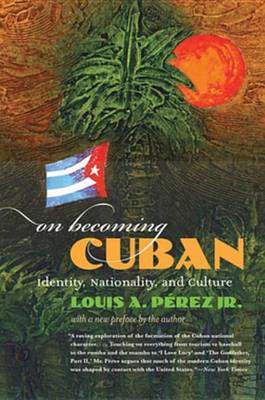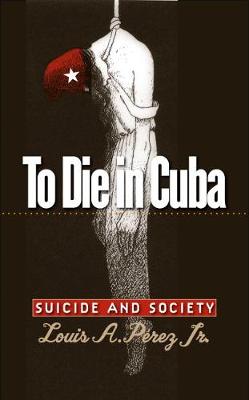H. Eugene and Lillian Youngs Lehman
2 total works
On Becoming Cuban
by J Carlyle Sitterson Professor of History Louis A Perez, Jr. and Louis A Perez, Jr.
Published 25 October 1999
With this work, Louis A. Perez Jr. seeks to transform the way we view Cuba and its relationship with the United States. "On Becoming Cuban" is a sweeping cultural history of the sustained encounter between the peoples of the two countries and of the ways that this encounter helped shape Cubans' identity, nationality and sense of modernity from the early 1850s until the revolution of 1959. Using a range of Cuban and US sources - from archival records and oral interviews to popular magazines, novels and motion pictures - Perez reveals a powerful web of everyday, bilateral connections between the United States and Cuba and shows how US cultural forms had a critical influence on the development of Cubans' sense of themselves as a people and as a nation. He also articulates the cultural context for the revolution that erupted in Cuba in 1959. In the middle of the 20th century, Perez argues, when economic hard times and political crises combined to make Cubans painfully aware that their American-influenced expectations of prosperity and modernity would not be realized, the stage was set for revolution.
For much of the nineteenth century and all of the twentieth, the per capita rate of suicide in Cuba was the highest in Latin America and among the highest in the world - a condition made all the more extraordinary in light of Cuba's historic ties to the Catholic church. In this richly illustrated social and cultural history of suicide in Cuba, Louis A. Perez Jr. explores the way suicide passed from the unthinkable to the unremarkable in Cuban society. In a study that spans the experiences of enslaved Africans and indentured Chinese in the colony, nationalists of the twentieth-century republic, and emigrants from Cuba to Florida following the 1959 revolution, Perez finds that the act of suicide was loaded with meanings that changed over time. Analyzing the social context of suicide, he argues that in addition to confirming despair, suicide sometimes served as a way to consecrate patriotism, affirm personal agency, or protest injustice. The act was often seen by suicidal persons and their contemporaries as an entirely reasonable response to circumstances of affliction, whether economic, political, or social. Bringing an important historical perspective to the study of suicide, Perez offers a valuable new understanding of the strategies with which vast numbers of people made their way through life - if only to choose to end it. To Die in Cuba ultimately tells as much about Cubans' lives, culture, and society as it does about their self-inflicted deaths.

